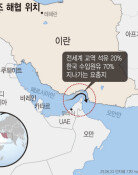[Opinion] One Trillion Won for Playing Golf Overseas
[Opinion] One Trillion Won for Playing Golf Overseas
Posted July. 01, 2005 05:54,
Mr. K (57), who runs a small-to-medium-sized company, enjoys playing golf overseas about three times every two months. Last month at a golf course in Kyushu he played 54 holes for three days. These days there are a lot of people like K at Incheon airport. Last year, the number of people playing golf overseas rose to about 1,000 from 500 to 600 on average a day in the year before last. With the five-day workweek going into full implementation, the number is expected to increase further.
According to tourism agencies, the number of tourists playing golf overseas stands at around 300,000 a year, and the amount of money they spend overseas exceeds one trillion won. The main reason Koreans go out of this country to play golf is that it is not difficult to book golf courses and the entrance fee of golf courses is affordable. The fee is 150,000 to 200,000 won in Korea, 50,000 to 60,000 won in the U.S., 70,000 won in Britain, 60,000 to 70,000 won in China and Thailand, and 120,000 to 160,000 won in Japan. Another reason is that unlike Korea, in foreign countries there is no anti-golf sentiment so that they can enjoy golf without worrying about what other people think about golf.
The day before yesterday, the Federation of the Korean Industries (FKI) urged the government to facilitate the construction of golf courses. The FKI said that increasing the number of golf courses, currently only 194, in Korea, will encourage people who play golf overseas to spend the money of some one trillion won a year in Korea instead of overseas, which in turn, will revive the sluggish construction industry. In fact, regulations on selecting golf courses and construction procedures are too strict. It takes around two or three years to get approval to build a golf course and some 780 stamps are required.
In July last year, then deputy prime minister and finance-economy minister Lee Hun-jae said he would grant approval to 230 companies that applied to construct golf courses as soon as possible. However, in the face of the opposition from environmental groups, his plan came to nothing. There is a need to consider giving early approval to construction of golf courses. Another way around this issue is to build golf courses in marginal farmland where efficiency of farming is low and to let farmers participate in the construction as shareholders. It may revive the construction industry, create more jobs and increase tax revenues of local autonomous governments. We cannot afford to say no to the construction of golf courses when one trillion won is flowing out of this country for golf overseas. We need to think about golf and the economy.
Song Young-eon, Editorial Writer, youngeon@donga.com






![[단독]“두건 쓴 무장경비대 길목마다 검문…택시로 20시간 달려 탈출”](https://dimg.donga.com/c/138/175/90/1/wps/NEWS/IMAGE/2026/03/05/133470282.1.jpg)
